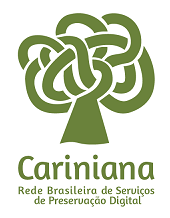Exile in Clarice Lispector
DOI:
https://doi.org/10.5433/el.2012v10.e25760Keywords:
Clarice Lispector, Literature, ExileAbstract
The purpose of this study is to discuss the exile in Clarice Lispector, having as the main focus the book Água viva (1973), but also making use of her posthumous work entitled Um sopro de vida: pulsações (1978), and some of her short stories. Exile, in this study, is understood as the way of reading the emptiness in Clarice Lispector, a process that questions both the relationship between politics and the common good, as well as the extent of the other. At first, this paper will focus on the thoughts of C.L. about the mirror in Água viva, and, later, on the relationship between language and negativity that is established in some of her works.Downloads
References
AGAMBEN, Giorgio. O cinema de Guy Debord. Tradução: Antônio Carlos Santos. Paris: Desclée de Brouwer, 2004.
AGAMBEN, Giorgio. O que é o contemporâneo? E outros ensaios. Tradução: Vinícius Nicastro Honesko. Chapecó: Argos, 2009.
BARTHES, Roland. A câmara clara. Tradução: Júlio Castañon Guimarães. Rio de Janeiro: Nova Fronteira, 1984.
BARTHES, Roland. Neutro. Tradução: Ivone Castilho Benedetti. São Paulo: Martins Fontes, 2003.
BATAILLE, Georges. La literatura y el mal. Ediciones El aleph, 2000. Disponível em: http://www.elaleph.com/libro/La-Literatura-y-el-Mal-de-GeorgesBataille/691710/. Acesso em: 10 jul. 2012.
BORGES, Jorge Luis. El jardín de los senderos que se bifurca. In: BORGES, Jorge Luis. Obras completas. Buenos Aires: Emecé, 2007. t.1.
DELEUZE, Gilles. Imagem-tempo. Tradução: Eloisa de Araujo Ribeiro. Brasiliense: São Paulo, 2007.
FREUD, Sigmund. O mal-estar na cultura. Tradução: Renato Zwick. Rio de Janeiro: L&PM, 2010.
LISPECTOR, Clarice. Água viva. Rio de Janeiro: Rocco, 1998.
LISPECTOR, Clarice. A paixão segundo G.H. Buenos Aires. São Paulo, Rio de Janeiro e Lima: ALLCA XXI, 1996.
LISPECTOR, Clarice. A imitação da rosa. Rio de Janeiro: Arte nova, 1973.
LISPECTOR, Clarice. Para não esquecer. São Paulo: Ática, 1979.
LISPECTOR, Clarice. Um sopro de vida: pulsações. Rio de Janeiro: Nova Fronteira, 1978.
NANCY, Jean-Luc. El sentido del mundo. Tradução: Jorge Manuel Casas. Buenos Aires: La marca, 2003.
NANCY, Jean-Luc. El ser singular plural. Tradução: Antônio Tudela Sancho. Madrid: Arena, 2006.
NANCY, Jean-Luc. La comunidade enfrentada. Tradução: Juan Manuel Garrido. Buenos Aires: La cebra, 2002.
NANCY, Jean-Luc. La existencia exiliada. Archipiélago, Barcelona, n. 26, 1996.
ROA BASTOS, Augusto. El Baldío. Buenos Aires: Losada, 2005.
TARKOVSKI, Andrei. Esculpir o tempo. Tradução: Jefferson Luiz Camargo. São Paulo: Martins Fontes, 2002.
WALDMAN, Berta. A retórica do silêncio em Clarice Lispector. In: JUNQUEIRA FILHO, L. C. U. (org.). Silêncios e luzes: Sobre a experiência psíquica do vazio e da forma. São Paulo: Casa do Psicólogo, 1998.
Downloads
Published
How to Cite
Issue
Section
License
A revista se reserva os direitos autorais sobre as contribuições publicadas, sem retribuição material para o autor, podendo disponibilizá-las on-line no modo Open Access, mediante sistema próprio ou de outros bancos de dados; também poderá efetuar, nos originais, alterações de ordem normativa, ortográfica e gramatical, com o intuito de manter o padrão culto da língua, contando com a anuência final dos autores. As opiniões emitidas pelos autores são de sua exclusiva responsabilidade.











